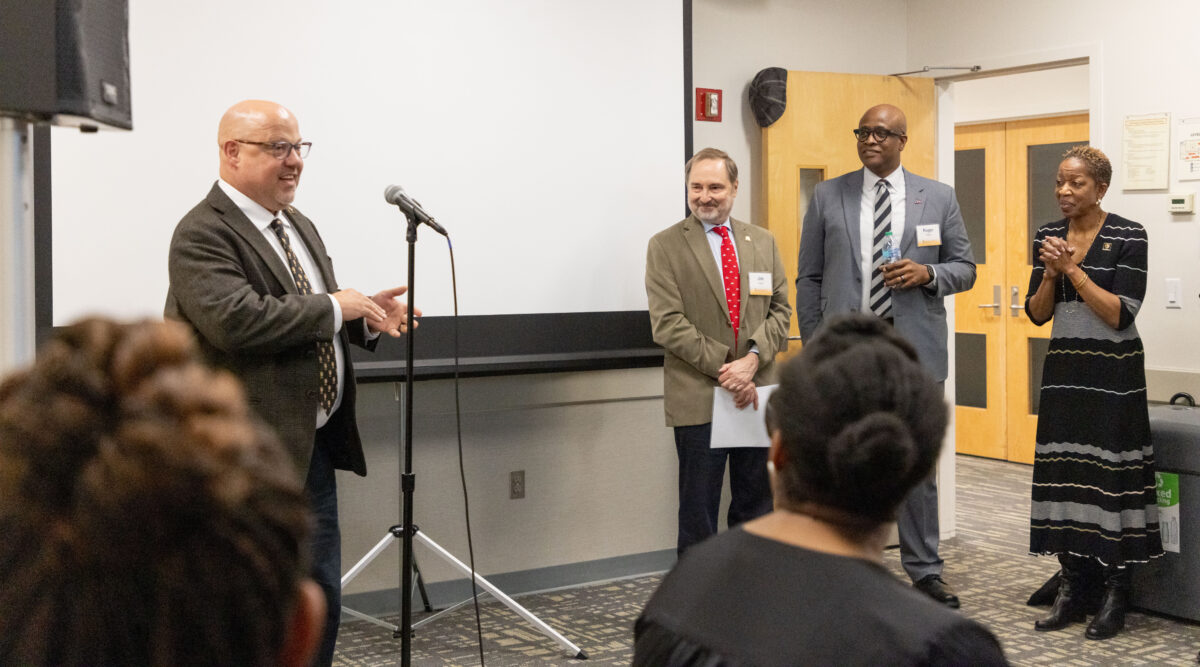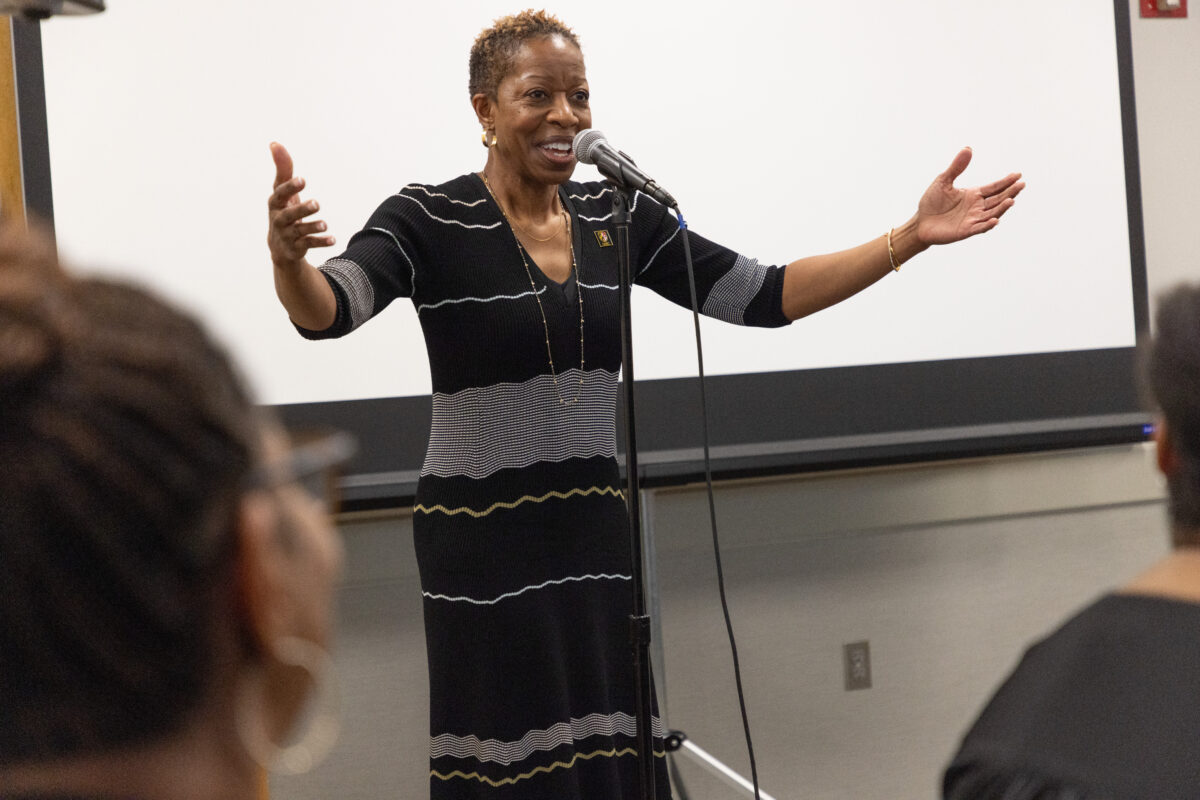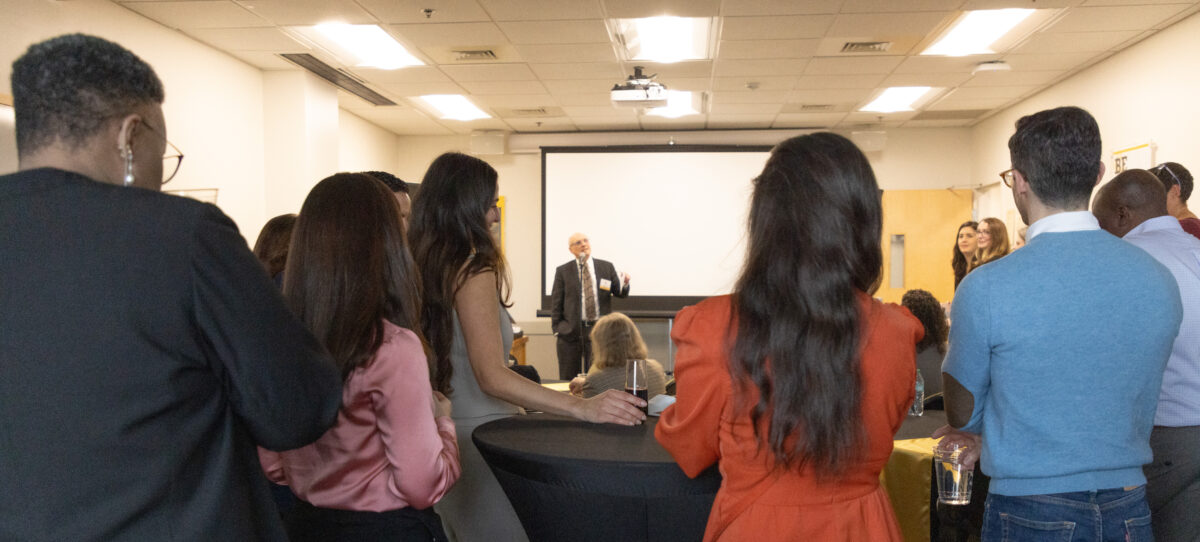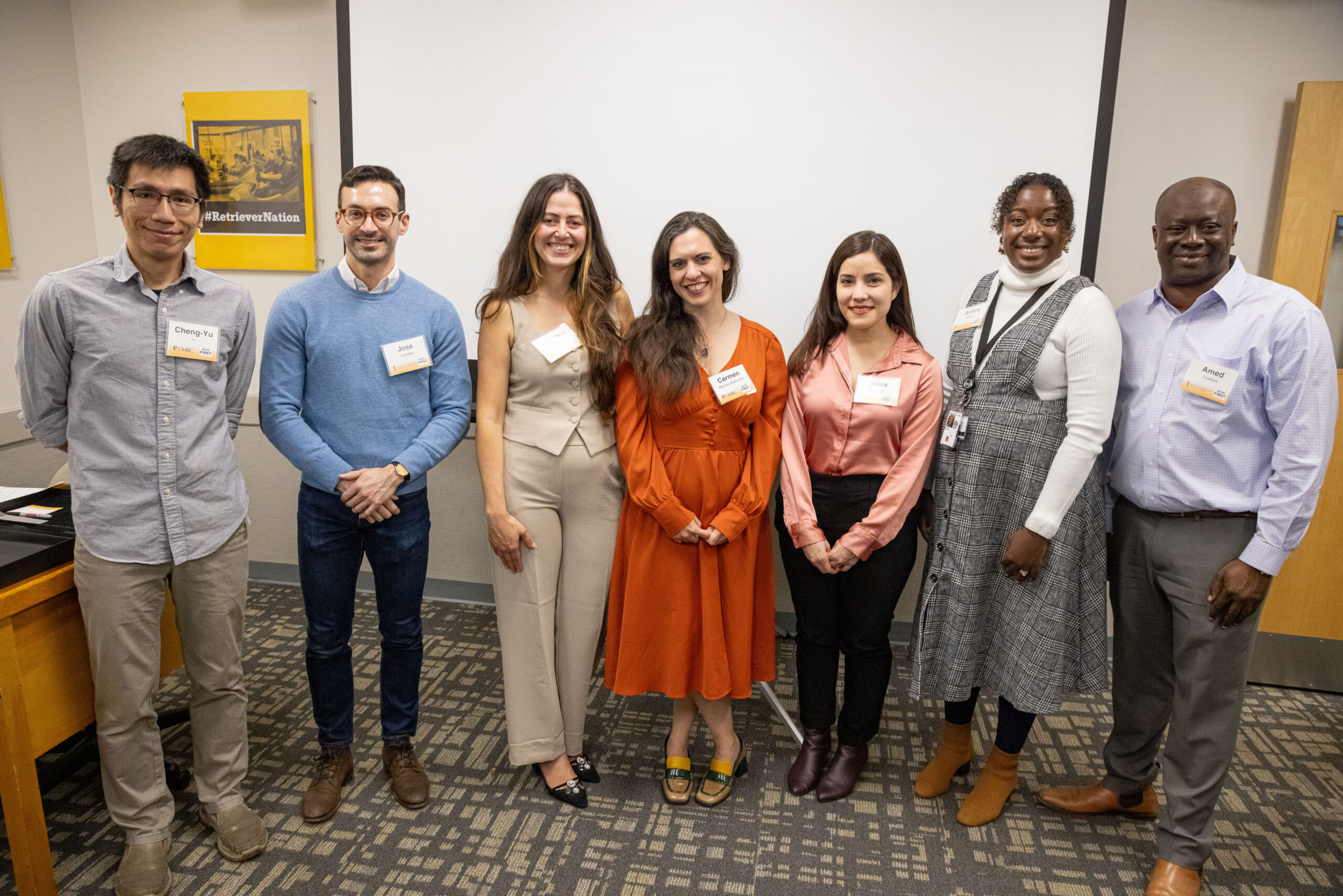In fall 2022, the College of Natural and Mathematical Sciences at UMBC and the University of Maryland School of Medicine (UMSOM) received a five-year, $13.7 million grant from the National Institutes of Health (NIH) to enhance recruitment and training of junior faculty and promote inclusive excellence at UMBC. Since then, UMBC and UMSOM teams have been planning programming for the incoming FIRST (Faculty Institutional Recruitment for Sustainable Transformation) cohort, undertaking faculty searches, and otherwise preparing for their new colleagues’ arrival.
As of this fall, four new UMBC faculty members and three new UMSOM faculty have been selected, with three more to be added at UMSOM. Two of UMBC’s hires are busy doing research, recruiting students, and settling into their new positions. The other two will officially assume their roles in January, but they are already visiting campus and starting to set up their laboratory spaces.
In November, the leads on the grant from both institutions and all the new hires gathered at UMBC for a reception to celebrate their first semester and build community among the cohort.
A talented group
“Although I have only been on board for three months, I already feel the leadership’s dedication to supporting early-career faculty, particularly those from underrepresented backgrounds, through professional development and tailored resources,” shared Cheng-Yu Li, a new assistant professor of biological sciences at UMBC hired through the program. “I am excited to work alongside this talented group of scientists and contribute to advancing neuroscience research, education, and outreach.”


Li’s research straddles neuroscience and behavior. His model system, African cichlid freshwater fish, is useful for studying reproductive and social behaviors, such as courtship rituals and aggression. Many of the mechanisms involved are applicable across a wide range of species.
Carmen Muñoz-Ballester, another new assistant professor of biological sciences at UMBC, is finding her department colleagues and the FIRST cohort to be helpful resources as she navigates her first year.
“The Department of Biological Sciences at UMBC provides a very supportive environment for building a scientific career, and I am very happy to be part of this thriving community,” Muñoz-Ballester says. “Life as a faculty member can be overwhelming at the beginning, and having the opportunity to share challenges and small wins with people in similar situations makes it much better. I am very glad to have my peers to count on in my daily life, and I am committed to making the most of this opportunity and paying it forward to future trainees and colleagues.”
Muñoz-Ballester’s work focuses on sex differences in the response to traumatic brain injury. Severe or repeated brain injuries (such as seen in football players) are getting more attention today, and men suffer more traumatic brain injuries overall, but she notes that women tend to have worse outcomes than men after sustaining less-severe brain injuries. Muñoz-Ballester will work to unpack the neural mechanisms behind the effects of these injuries in both sexes, potentially leading to more effective treatments.

Tackling the biggest challenges
Diana Elizondo and Gretchen Alicea will round out the FIRST cohort at UMBC. Elizondo is an immunologist who uses mice to study signaling pathways involved in inflammation and metabolic disorders like diabetes and obesity. Alicea focuses on how metabolic changes in the environment immediately surrounding malignant tumors are related to the risk of metastasis. Jose Lemme, Alisha Blazer, and Amed Outtara have been brought on board at UMSOM.
William R. LaCourse, CNMS dean, is thrilled to welcome these new members of the faculty to UMBC. Their research interests include some of the most pressing issues society faces today, like cancer and obesity. These researchers are also approaching study areas that may deserve more attention from innovative angles.
“Thank you for choosing our institutions to be a part of your academic careers. We want you to know that your success goes beyond the UM FIRST program and even beyond tenure. Your success is that you always find joy in research, mentoring, teaching, and life,” LaCourse said at the reception. “This room is full of individuals who are there for you.”

